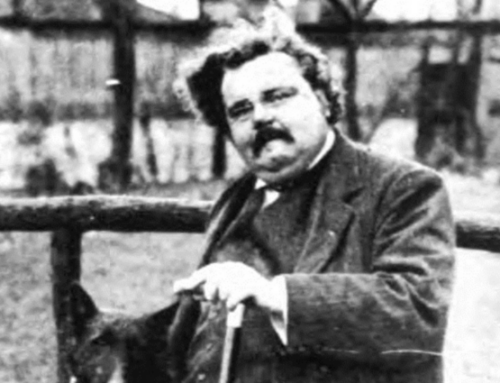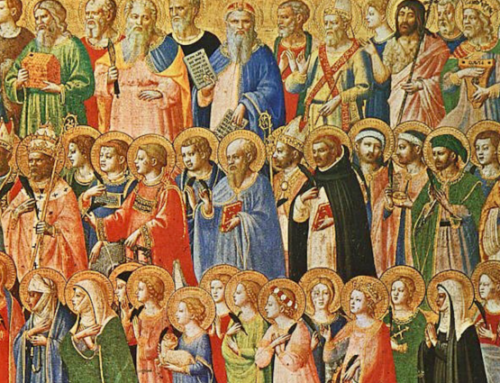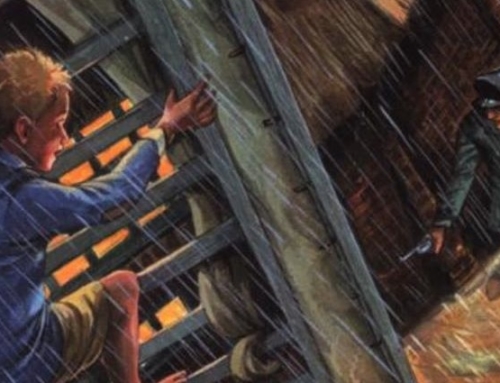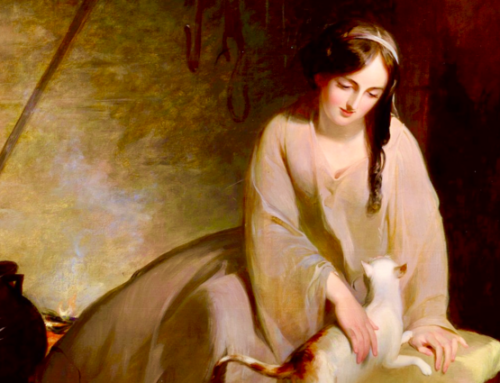Other university presidents, provosts, and deans need to support and emulate President Morton Schapiro of Northwestern University. If they can find the courage to support somebody else standing up against the mob, they might find that they have the courage to stand up to their own mobs and discover that when there is no pursuit of truth, there can be no real justice, social or otherwise.
 Can modern universities be saved? A great many observers think not. As social psychologist Jonathan Haidt has noted, universities today ultimately have to figure out whether their goal is social justice or truth.[1] Most administrations have decided that it is social justice, and the end result is that universities are no longer places where any important conversations can be had in any important way in public or, quite often, even in private. Some might object to this characterization: Why can’t a university have as its end social justice and truth? Dr. Haidt probably overstates the case. Universities with a coherent mission of seeking truth, which is committed to a view of the world informed by a particular philosophy or, more likely, theology, can certainly have as their end truth and social justice at the same time. Such institutions are usually grounded in some combination of Christian, Jewish, and philosophical understandings of the human person as made in the image of God, rational with intrinsic dignity and a communal nature.
Can modern universities be saved? A great many observers think not. As social psychologist Jonathan Haidt has noted, universities today ultimately have to figure out whether their goal is social justice or truth.[1] Most administrations have decided that it is social justice, and the end result is that universities are no longer places where any important conversations can be had in any important way in public or, quite often, even in private. Some might object to this characterization: Why can’t a university have as its end social justice and truth? Dr. Haidt probably overstates the case. Universities with a coherent mission of seeking truth, which is committed to a view of the world informed by a particular philosophy or, more likely, theology, can certainly have as their end truth and social justice at the same time. Such institutions are usually grounded in some combination of Christian, Jewish, and philosophical understandings of the human person as made in the image of God, rational with intrinsic dignity and a communal nature.
But when we are talking about today’s universities, many of them public, we are talking about a real division. The pursuit of truth cannot really go with the understanding of social justice that motivates the modern academy.
In a recent review essay for the British journal UnHerd, Birkbeck University professor Eric Kaufmann looks at the rise of Critical Theory in the western universities. Critical Theory, and particularly its variant Critical Race Theory, is the intellectual foundation for the Woke revolutions that began on college campuses and now have been spreading through lower education, journalism, publishing, corporations, and even government. Critical Theory is the underpinning for what most people today understand as social justice. It is, Professor Kaufmann rightly notes, a kind of religion, and a very bad and unintellectual one at that. “It consists of layers of assertions, built up over time, with each new generation of theories building on the inventions of previous theorists. Using moral self-righteousness and the leftist monoculture of the soft social sciences to shield them from scientific scrutiny, its practitioners have founded a series of fields such as queer theory, critical race theory, fat studies and critical gender theory.”[2] The reason Critical Theory’s version of social justice cannot coexist with any search for truth is that any challenge to the view of the Critical Theorists who have gained power—including, says Professor Kaufmann, “demand[ing] evidence for its claims”—is treated not as disagreement or even heresy but as, in Dr. Haidt’s term, “blasphemy,” and a sign of evil will.
Professor Kaufmann, in treating University of California Santa Cruz emeritus professor of English John Ellis’s book The Breakdown of Higher Education, agrees with Dr. Ellis’s conclusion that hope for any kind of internal reform in the modern university is now vain. Dominated by faculty who are themselves a left-wing political monoculture, the university’s remaining conservatives of any sort—which now largely means old-fashioned liberals who still believe in truth, debate, and evidence—are now engaged in a version of The Most Dangerous Game. Professor Kaufmann writes, “Professors who fail to conform to campus orthodoxy face open letters, chanting students and Twitter mobs trying to end their livelihoods.”
This is even truer for administrators. Given what’s at stake for them (they make much more money than mere professors), acquiescence to mobs is almost a given. The end result is that universities have almost completely ceded their position as the place where intellectual debate happens and students learn things. They have also increasingly decided to give in to the demands of activists to spend more money on activities of diversity, equity, and inclusion—which is convenient since this means hiring more administrators who will themselves take in hefty salaries. A 2018 report on the University of Michigan showed 93 full-time diversity administrators, with 26 of them claiming annual six-figure salaries at a total cost to the university of nearly $11 million.[3] Given that many of the people hired to such positions are not only interested in six-figure salaries but also believe in the social justice religion, what Professor Kaufmann calls the “ratcheting programme of language policing, Twitter mobbing and re-education” can only grow apace.
Professor Kaufmann agrees with Professor Ellis that there is no internal hope for the universities. Any change requires “outside intervention, from donors, trustees or the Government.” But even that is a parlous hope given the galloping stampede of Critical Theory in so many areas of culture. While President Trump’s executive order forbidding the use of Critical Race Theory in diversity training for government organizations or those who are federally funded is a welcome thing, Professor Kaufmann notes that it comes too late. Indeed, Critical Race Theory has already been welcomed widely and many corporations and government agencies are attempting to evade the order. Where then can we find hope?
If, as Aleksandr Solzhenitsyn claimed in his 1970 Nobel Address, “one word of truth outweighs the whole world,” what can a university president’s email of truth do? President Morton Schapiro of Northwestern University in Evanston, Illinois, has not faced down Critical Theory as a whole, but he has certainly faced down some of its student shock troops. Northwestern’s campus police force, a private agency with a mutual cooperation agreement with the Evanston Police, has full police power both on campus and in the neighboring area. Students in a group called Northwestern University Community Not Cops (NUCNC) began protesting on October 12 to abolish the campus police force. By October 17 they and other outside agitators had begun to vandalize parts of the campus, spray painting anti-police messages and even setting fire to banners hung by the university, and block traffic around the university in residential areas. A group of them even surrounded President Schapiro’s house and chanted “f— you Morty” and “piggy Morty.”
Rather than truckle to these budding totalitarians, President Schapiro sent a campus-wide email that acknowledged that concerns about injustices and policing in our country are real. But he also called the bluff of those claiming that such mob behaviors are necessary to get the attention of Northwestern: “While the protesters claim that they are just trying to get our attention, that is simply not true. Several administrators—including our Provost, Deans, Interim Chief Diversity Officer and Vice Presidents for Research and Student Affairs—have held numerous discussions with concerned students, faculty and staff, and I am participating in a community dialogue tomorrow evening that was scheduled weeks ago.”
He affirmed that the pursuit of truth on Northwestern’s campus was not to be impeded by the desires for social justice: “Northwestern firmly supports vigorous debate and the free expression of ideas—abiding principles that are fundamental for our University. We encourage members of our community to find meaningful ways to get involved and advocate for causes they believe in—and to do so safely and peacefully.” The protesters’ actions were not noble cries for help but instead “vile” actions: “To those protesters and their supporters who justify such actions, I ask you to take a long hard look in the mirror and realize that this isn’t actually ‘speaking truth to power’ or furthering your cause. It is an abomination and you should be ashamed of yourselves.”
The affirmations are important, the condemnation is more important, but most important were the statements about what he was going to do. He would not even consider the absurd demands of the group, noting that “while the University has every intention to continue improving NUPD, we have absolutely no intention to abolish it.” He would promise that anybody who broke the law or engaged in acts of intimidation “will be held accountable.”[4]
President Schapiro may not have exorcised the academy of Critical Theory, but in both defending the Academy as a place to speak freely and debate the questions of justice, and standing up to and using his authority against those who think “social justice” justifies intimidation, vandalism, and crime, he has done something just short of a miracle.
Other university presidents, provosts, and deans need to support and emulate President Schapiro. If they can find the courage to support somebody else standing up against the mob, they might find that they have the courage to stand up to their own mobs, faculty-, student-, or Twitter-based. They might even begin to challenge the Woke Inquisitioners of Critical Theory and discover that just as when there is no justice no peace can follow, so too when there is no pursuit of truth, there can be no real justice, social or otherwise.
The Imaginative Conservative applies the principle of appreciation to the discussion of culture and politics—we approach dialogue with magnanimity rather than with mere civility. Will you help us remain a refreshing oasis in the increasingly contentious arena of modern discourse? Please consider donating now.
Notes:
[1] See here.
[2] See here.
[3] See here.
[4] Read the whole message here.
The featured image is a photograph of Morton Owen Schapiro (2008) by Northwestern News and is licensed under the Creative Commons Attribution 3.0 Unported license. It appears here courtesy of Wikimedia Commons.







A breath of fresh air. The rest of us are going to have to find our voices and use them. The political correctness nonsense has even invaded our religious and secular colleges in the South. I am shocked and dismayed.
Indeed the ubiquitous, dangerous and destructive presence of Critical Theory has got to be pushed back wherever we find it, in the interest of truth…i.e. TRUTH.